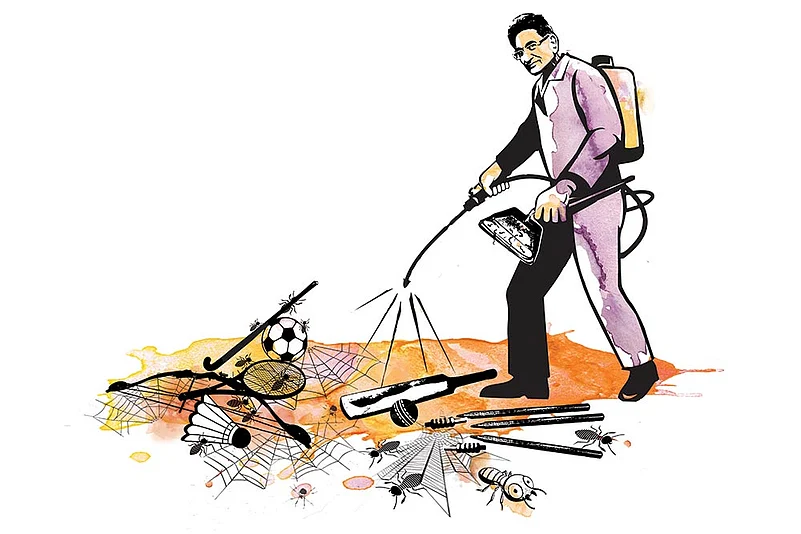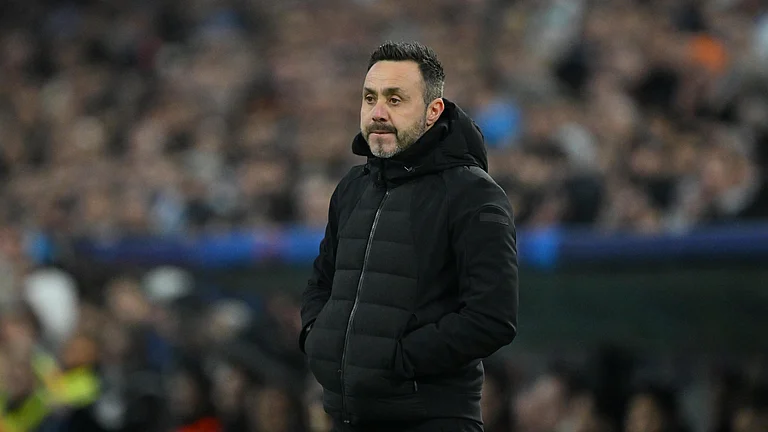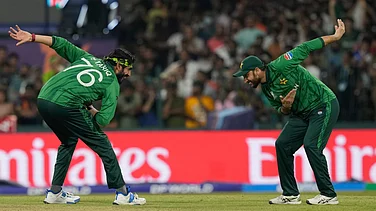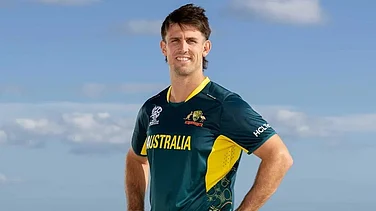The war between the chief arbiter of Indian cricket, the Board of Control for Cricket in India, and the Supreme Court-appointed Lodha committee is interestingly poised. Who will blink first, wonder those following the arguments in the court closely. Will the BCCI be forced into accepting all the proposed reforms, which could well change its character fundamentally, or will the board get away with a few cosmetic changes?
The answers to these questions will be revealed soon, but the BCCI vs Lodha Committee battle may have some unlikely beneficiaries—other sports federations. Although Justice (retd) Lodha’s recommendations are for cricket, in the months and years to come, they could prove to be the catalyst for change that everyone hopes for in other Indian sports federations. Can these reforms, drafted by a panel of three former Supreme Court judges, headed by retired chief justice R.M. Lodha, have a far-reaching, positive impact on Indian sports, rubbing off on other federations?
Yes, say legends and stalwarts. Sprinter P.T. Usha, former India football captain Chuni Goswami, hockey greats Zafar Iqbal and Joaquim Carvalho, former national badminton champion Uday Pawar, and many-time billiards world champion Michael Ferreira feel Indian sports would only gain from these new rules, though currently they are meant for cricket. They say that if all these are incorporated in National Sports Federations (NFS), they have the potential to dramatically change the way sports is governed. It would result in better performances by athletes at the global level—and thus more medals for the country.
For the Lodha committee recommendations to percolate into other sports, some bold people within the various NSFs, who are unhappy with the current, entrenched set of administrators, will have to take the initiative. With the Lodha committee report in hand, these people could either approach a court of law and pray that similar guidelines be made mandatory for their federation as well or demand that the Union sports ministry take some effective action. Former India football captain Chuni Goswami, for one, has no doubt that the NSFs stand to benefit by embracing the reforms. “Certainly, it will improve Indian sports. If some people are there for say, 10 or 20 years, and are not functioning well, new people can give a new direction. The basic things needed are proper selection committees and whether they are functioning well or not,” says Goswami. “If opposition leaders within a federation are not happy with the current functioning they can appeal to the sports ministry to begin with. If they are not happy with the [response of the] ministry, they can go to the court,” says the 78-year-old footballing legend.
Broadly, the Lodha committee has proposed a limitation of age (retirement at 70) and tenure (maximum of 12 years) for officials, more player representation/say in federations, promotion of women athletes, registration of player agents/managers, appointment of ombudsmen, vigil against conflict of interest, and match-fixing/betting. These measures are similar to the 2013 Draft National Sports Development Bill, like age and tenure stipulation. Even if the Bill hasn’t become law, the ministry insists all NSFs comply with its guidelines. India’s archery and tennis federations are amongst several NSFs that have been derecognised by the Centre for refusing to accept the guidelines. If both the guidelines and the Lodha panel’s reforms were to be applied to other sports federations, several officials who have been clinging on to their chairs for decades would have to up and leave.

Kalmadi, Randhir Singh and Lalit Bhanot, who ruled Indian sports for three decades, from the 1980s on
Take the present Archery Association of India (AAI) president Tarlochan Singh, 83, who is noncommittal on making room for others. Interestingly, Vijay Kumar Malhotra, now 85, left AAI last year only when he was appointed head of the All India Council of Sports by the Centre. He was AAI president for 42 straight years, starting 1973! “The issue you are talking about can be discussed only in the Indian Olympic Association (IOA), which has not agreed with the government guidelines [Draft Bill] and has gone to Supreme Court against that,” says Tarlochan Singh, who is also an IOA vice-president. “Lodha panel recommendations are on an order of the Supreme Court. Nobody can challenge it. You can ask for my opinion on these recommendations only if there’s a scope to do something. There’s no scope left,” says Tarlochan. Malhotra, a former BJP MP, declined to comment on whether the reforms should be implemented in NSFs to their ultimate benefit.
Former Davis Cup player and coach Akhtar Ali makes another point. “Ninety per cent of the sport is controlled by people who have never played the game. But they want to be administrators,” he says. However, sporting greats are all for the Lodha Committee recommendations. “If these recommendations are implemented in the BCCI, the other NSFs will be compelled to do that as well. That should be done. I want them to be implemented in the Athletics Federation of India (AFI),” P.T. Usha tells Outlook. The AFI is the body that politician Suresh Kalmadi headed for many years—until corruption charges in the 2010 Delhi Commonwealth Games landed him in Tihar jail. “Among other things, these recommendations seek to account for each penny that is spent. As far as cricket is concerned, the public perception is that it’s more of a business than a sport. And media owners have vested interest in cricket,” says Usha.
Hockey greats Zafar Iqbal and Joaquim Carvalho agree with her. “If the Supreme Court has cleared it, and if it’s fit for BCCI, it can do for the other federations as well with minor modifications,” says former India captain Iqbal. He was part of the committee that drafted the sports Bill. “But this policy will not be approved because it goes to the Union cabinet, which is made up of politicians, who are involved in sports federations. They’ve rejected the policy a few times before,” he says. “The only path left was that of a court of law to enforce the reforms. Now, politicians can’t say that the Lodha committee recommendations would have to go to the cabinet and Parliament for approval.” Says Carvalho, a former India teammate of Iqbal: “When an order is passed, it is often used for subsequent cases. I strongly feel that this excellent report should be implemented and should be binding on all sports federations in the country. Indian sports would benefit from it.”
Former badminton doubles champion Uday Pawar is all for reforms in his sport. “Yes, the Lodha recommendations should be implemented fully. On a few things, there could be a compromise. What I like in the recommendations is the provisions to check clashes of interest. You cannot have dual roles,” he says. “If a coach is connected with a management company, that’s a clash of interest. I was senior national coach for nine years but when my son Anand got selected to the Indian team, I resigned as there would have been a clash of interest. No player with a private academy or whose children are playing competitively at the national level should be the national coach, selector or administrator.”
Anil Khanna, till recently president of the All India Tennis Association, had also held on to his post for years on end. President of the Asian Tennis Federation as well, Khanna inherited the chair from his father, R.K. Khanna, who was AITA president for many years. However, Khanna, also vice-president of International Tennis Federation and president of the Asian body, has finally stated at recent AITA polls that he was not interested in continuing as president, though he continues to be IOA treasurer.
In the past, too, some administrators demitted office when forced by circumstances. Former badminton president Fazil Ahmed had to quit when Prakash Padukone led a players’ rebellion against Badminton Association of India (BAI) office-bearers. BAI secretary Shri Ram Chadha finally quit when Parkinson’s made it impossible for him to continue. His successor, L.C. Gupta, died in office. Power over others and control over resources is such a lure that officials find one reason or the other to stick around. “The important thing is that accounts should be clear and transparent. There should not siphoning or defalcation the federation money. Then, if people are there for long periods, self-interest develops,” says Chuni Goswami.
Although there are no charges of defalcation against BCCI administrators in the recent past, it is the arrogance of some of them that has brought the board a bad name—and in the eye of a storm. The silver lining in this battle could be its positive repercussions on other sports federations. If that happens, sportspersons who have always blamed cricket for the state they are in, will have to thank it indirectly for ushering in a new age of accountability.
***
Tied To Posts
India’s sports bodies have long been fiefdoms of stodgy grandees

V.K. Malhotra
Now 84, he quit as president of the archery body, after 42 years, in 2015, when made head of AICS. The archery body stands derecognised.

Anil Khanna
Succeeded father R.K. Khanna in tennis association, has been secretary and president. Tennis body stands derecognised by the government.

Suresh Kalmadi
Once Indian and Asian athletics chief, he was forced to quit when he was jailed for alleged corruption in the 2010 Delhi CWG

Tarlochan Singh
The 83-year old politician heads archery association, is V-P of IOA, and is noncommittal on quitting sports administration

G.S. Mander
Another grandee of administration. Headed wrestling federation for years, headed launch of the wrestling league, continues as IOA vice-president.

Jagdish Tytler
The controversial Congress leader ruled the judo federation for a long 27 years. Now 72, he finally left the post last year.


























